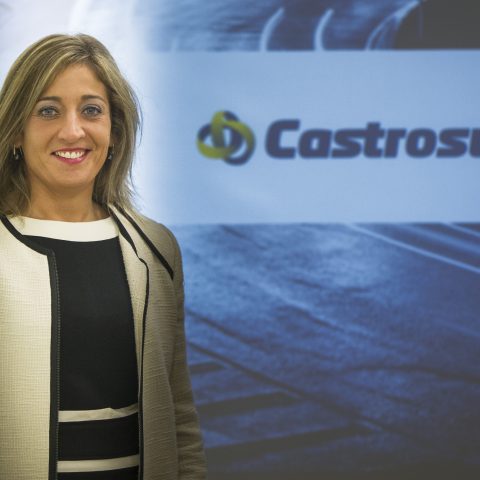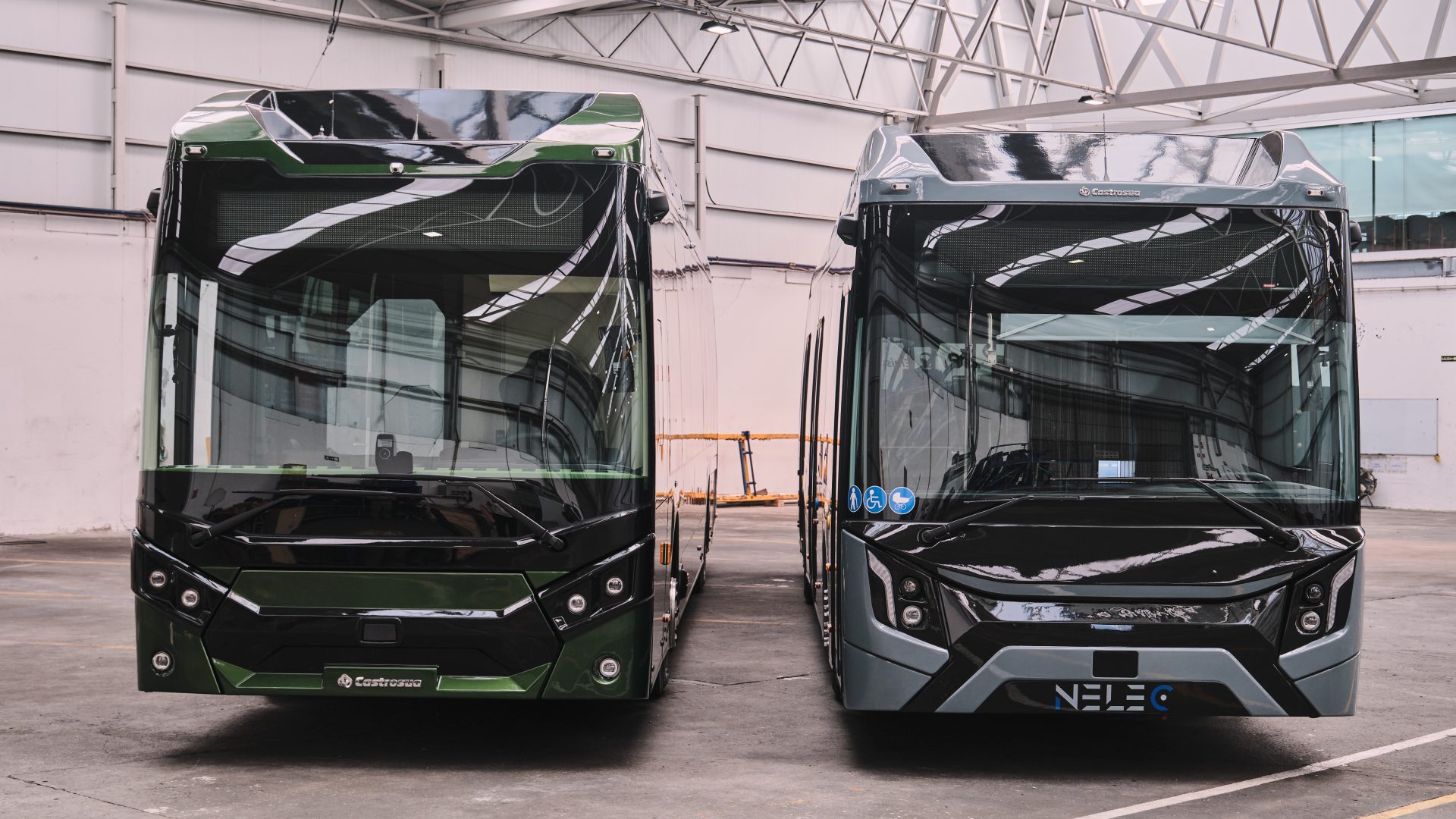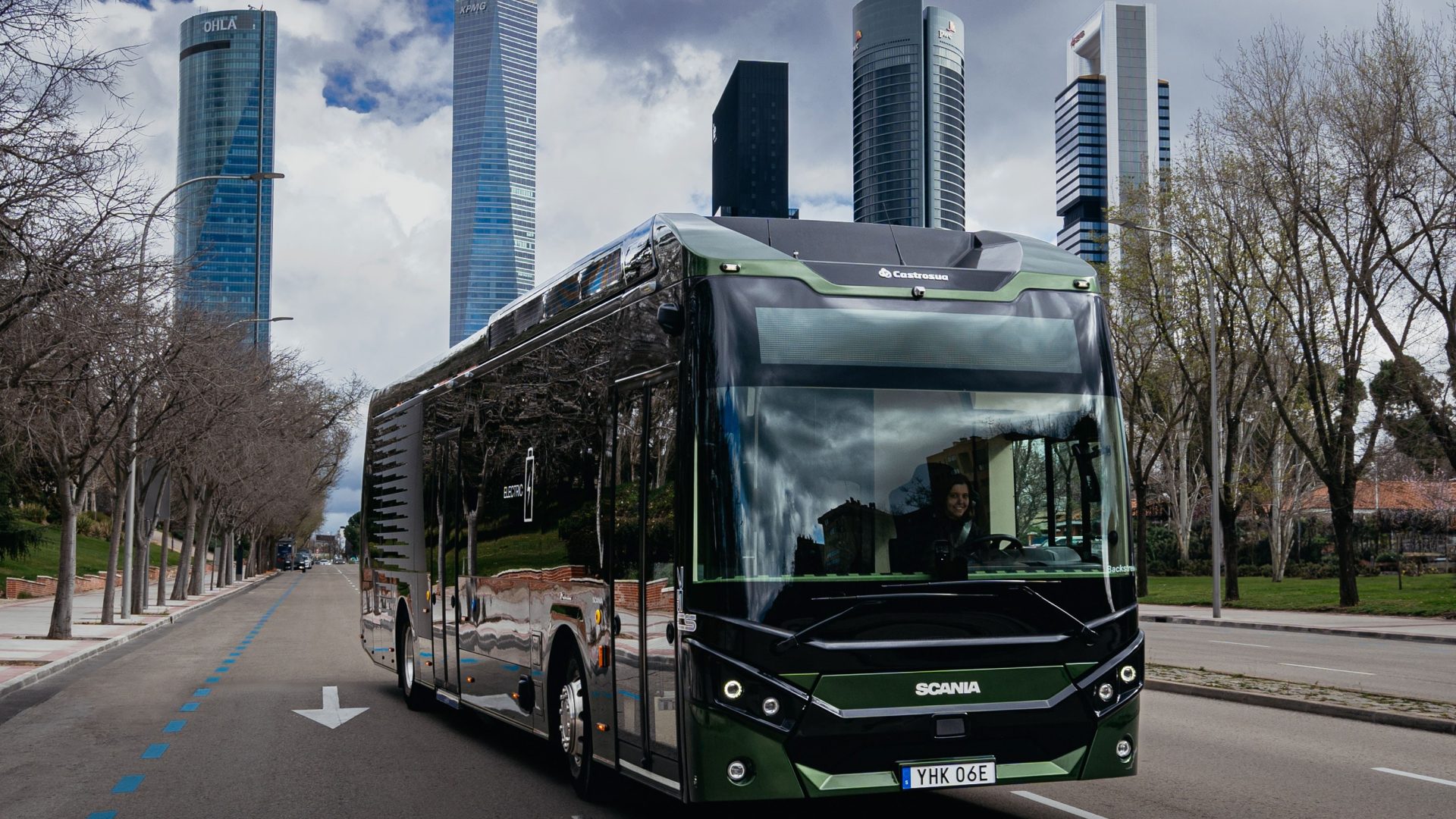Castrosua’s strategies in the evolving landscape of bus e-mobility: our interview with CEO Beatriz Castro
Deals with giants such as Volvo Buses, Scania and BYD have led to a lot of talk about the Spanish bodybuilder Castrosua lately. As a matter of fact, they fit into a trend that sees the European industrial bus landscape changing in the direction of a new golden age for bodybuilders. In this interview, Beatriz […]

Deals with giants such as Volvo Buses, Scania and BYD have led to a lot of talk about the Spanish bodybuilder Castrosua lately. As a matter of fact, they fit into a trend that sees the European industrial bus landscape changing in the direction of a new golden age for bodybuilders.
In this interview, Beatriz Castro García, the CEO of Castrosua since 2018 (representing the third generation of the family), outlines the company’s history, recent achievements, and strategic direction, highlights the company’s commitment to innovation and sustainability, emphasizing its role in the growing trend towards e-mobility both in Spain and globally. Graduated in Madrid, she has a degree in Business Administration and Management and holds postgraduate qualifications such as a Master’s Degree in Management Strategy and an MBA from ESIC.

At present, the company has facilities of more than 80,000 square metres located in Santiago de Compostela (A Coruña), Villagarcía de Arosa (Pontevedra) and Las Palmas de Gran Canaria (Canary Islands), of which approximately 35,000 metres are dedicated to central services and production plants.
Our production volume is around 430 vehicles per year, depending on the product mix, within our wide range, although we could reach an annual capacity of 600 units. For the year 2024 we set ourselves the challenge of maintaining our production volume at full capacity, this being a year of clear recovery and with an ambitious budget, after years of market decline and an unprecedented crisis in the global supply chain.
Beatriz Castro García, CEO of Castrosua
Beatriz Castro García: Castrosua in the electric bus market
Can you provide a few background information of the company?
We are a family company with 75 years of history, leaders in Class I and II in the Spanish domestic market, perceived as a bodybuilder with high added value in its products, highlighting our ability to design and develop customised projects. Historically, we have been committed to the development of vehicles powered by eco energies and to promoting R&D&I, which has enabled us to obtain various national and international awards. At the time, we have been pioneers in the development of low-floor urban buses and leaders in CNG buses for more than 25 years.
In the last decade, we have delivered a total of 3,500 vehicles, distributed in various market segments, including city buses (1,780) and commuter buses (1,533), of which we are specialists, and the rest intercity coach Class III (this segment we see as a complementary proposal to the rest of the range).
During 2023, Castrosua delivered a total of 267 vehicles. The turnover in the last year exceeds 46 million euros, 6 million more than in 2021, starting with a new stage of recovery after the pandemic. We always value our growth in a sustainable and responsible manner.
Our production volume is around 430 vehicles per year, depending on the product mix, within our wide range, although we could reach an annual capacity of 600 units. For the year 2024 we set ourselves the challenge of maintaining our production volume at full capacity, this being a year of clear recovery and with an ambitious budget, after years of market decline and an unprecedented crisis in the global supply chain.
Castrosua has recently entered into strategic cooperations with major players in the electric bus market such as Volvo Buses, Scania, and BYD. How do these partnerships fit into Castrosua’s long-term vision and growth strategy?
Castrosua has a collaborative soul, it is one of our values. For us, strategic partnerships both horizontally and vertically (in both directions) is one of our raisons d’être. Collaborations with leading electric chassis manufacturers, such as Volvo Buses, Scania and BYD, reflect our ongoing commitment to innovation and sustainability, and are a sign of how important partnerships are to us.
Castrosua has always made contributions to sustainable mobility and these collaborations show that we are committed to offering mobility solutions that reduce emissions and contribute to the improvement of air quality in urban environments, always complying with the high quality standards that are the hallmark of our company.
These partnerships have allowed us to strengthen our international presence and reach different markets such as Lithuania, South Korea, Abu Dhabi and Poland.
In short, these strategic partnerships are a key component of Castrosua’s medium and long-term vision and growth strategy, allowing us to collaborate with leading technology, expand our product offering, strengthen our competitive position, and foster innovation through the development of joint proposals. We want to continue to be a lever that enhances the ability to respond to the challenges of our partners, and to increase the range and versatility of the product portfolio available.

Castrosua with Scania for the intercity e-bus market
How is Castrosua organised today and how do you plan to develop the company’s structure in order to keep up with rising volumes of production?
We are currently organised to provide capacity for some 430-450 units. As we consider an increase in demand, we strengthen our organisational structure to manage this growth in an optimal and sustainable way.
In our DNA as a company we always seek continuous improvement, which is why we automatically review all production, design and management processes in search of optimisation, as well as the capacity of the different areas or departments. To this end, we opt for an internally developed management system that provides us with relevant information for management and decision-making throughout the entire process.
We also strive to improve our supply chain development and relationships through partnerships with suppliers in order to ensure timely supply, which is key for the whole industry at this time.
We have a very experienced and talented team in the company. Caring for the well-being and development of our employees is a priority for us, to which we dedicate specific resources.
In Spain, I see great potential for the growth of electric mobility, driven by government support, developing infrastructure and growing demand for cleaner and more efficient transport solutions. Investment in charging infrastructure, incentives for the purchase of electric vehicles and stricter regulations on emissions from internal combustion vehicles are just some of the initiatives that are driving this change. But I think it is also very important to give the industry time to adapt and allow all emerging technologies to mature. I strongly believe in applying a smart mix of different existing technologies as the key to meeting the global challenge we face, all clearly contributing.
Beatriz Castro García, CEO of Castrosua
Castrosua – Scania: the 75CS is the first intercity e-bus on the market
Castrosua’s partnership with Scania resulted in the development of a BEV Low Entry Class II bus, which has so far been presented to Spanish operators. Which are the main highlights of this product, and which markets are you targeting with it? Could you give us also a glimpse about timing of delivery?
75CS is our first purely electric Class II vehicle for the intercity segment. Despite years of market decline, we have continued to invest in the product range we believe in. This is the result of our constant innovation, offering our customers a unique proposition. Our 75CS model reflects our commitment to excellence and sustainability, which highlights its design, with new processes and materials, and results in a different proposal, but without losing Castrosua’s hallmarks such as accessibility, ergonomics and safety. Of course, all our models comply with all current legislation, but we differentiate ourselves by incorporating as standard regulations that are not mandatory in its segment but that we consider important from the point of view of safety and sustainability. We never forget that we transport people and that we must actively contribute to improving global mobility.
75CS, like NELEC in class I, are developments designed entirely in-house by Castrosua, and allow a high level of customisation for customers, and in detail to configure exclusive designs. Structurally, the bodywork stands out for its lightness and adaptability; it also incorporates an indirect vision system to replace mirrors, excellent ergonomics in the driver’s seat, independent air conditioning ducting for better efficiency and lower energy consumption, backlit stop buttons, front door with sensitive edge, air conditioning with heat pump, automatic and manual ramps for PRM access, as well as spacious areas for driver and passenger, among others.
The future of e-mobility in Spain
As the CEO of Castrosua, how do you envision the future of electric mobility in Spain and globally, and what role does Castrosua aim to play in shaping this future?
I envision an exciting and promising future for electric mobility both in Spain and globally. Growing awareness of climate change and the need to reduce greenhouse gas emissions are driving a rapid transition to more sustainable forms of transport, and electric mobility will play a key role in this process.
In Spain, I see great potential for the growth of electric mobility, driven by government support, developing infrastructure and growing demand for cleaner and more efficient transport solutions. Investment in charging infrastructure, incentives for the purchase of electric vehicles and stricter regulations on emissions from internal combustion vehicles are just some of the initiatives that are driving this change. But I think it is also very important to give the industry time to adapt and allow all emerging technologies to mature. I strongly believe in applying a smart mix of different existing technologies as the key to meeting the global challenge we face, all clearly contributing.
Globally, electric mobility is experiencing exponential growth, with many countries setting ambitious targets for the electrification of their transport fleets. We must also be responsible to sustain it over time and have the necessary infrastructures in place, as well as provide a quality service to users, and this requires good operational management and support for transport operators.
Our goal as a company will be to play an active role in shaping this future of electric mobility or any mobility that adds to the global goal, to contribute in a meaningful way to the creation and preservation of a cleaner, more sustainable and efficient future for all.
Many OEMs have recently moved towards a business model based on cooperation with bodybuilders. Which are, in your opinion, the reasons for that and which is the added value that a bodybuilder partner such as Castrosua can provide?
In my opinion, there are several factors that influence the decision of brands, including profitability and the quality of the final product. As a bodybuilder who has been operating this business model for 75 years, the quality and customisation of the end product is a key factor. In the end, specialisation allows each party to leverage its experience and expertise to deliver high quality products that meet the specific needs of the customer.
In terms of profitability, the collaboration means a significant reduction in costs, as we complement them with a product that is difficult to defend in mass production lines. I think it has been confirmed that maintaining the business model of being a bodybuilder is not easy, it requires experience and flexibility.
The differential value provided by Castrosua is customised production, the personalisation of each bus according to the customer and the use to which it is going to be put. In this sense, we listen to our customers in the vehicle definition phase, incorporating their needs into our bodies and advising them at all times. This close contact with the customer also allows us to know where to focus innovation and seek solutions adapted to the sector and make proposals.
The focus of Castrosua on aftersales
Can you outline how Castrosua is organised concerning aftersale services?
For the Spanish market, Castrosua currently counts with 60 service shops distributed throughout the country; one of which located in Canary Island, forms part of the Castrosua Group. These service shops will provide customers with the aftersales support for resolving incidences and warranty repairs. Customer may also resolve bus-body warranties through the chassis manufacturer of the bus.
For export market Castrosua does not have a network of service shops constant, thus aftersales services are organised through the network of the chassis manufacturer who will provide the customer with an integral bus service. We prepare the project each market. Our experience with this formula is very successful.
Castrosua manages directly through its after-sales team, both the coordination of incident resolution through the service network, as well as direct assistance with its own highly trained and specialised technical staff, which also provides training to customers and service workshops on the most important issues for the proper maintenance of their vehicles.
Castrosua’s after-sales service also manages directly the sale of spare parts for its bodies, wherever they are located, maintaining its own centralised stock and others close to the main centres of operation of Castrosua vehicles, in order to provide a supply of quality spare parts at very competitive prices and with a good level of service.
In short, the after-sales services organisation is designed to provide full and continuous support to its customers, ensuring that their buses operate reliably, efficiently and safely throughout their service life.
How does Castrosua plan to differentiate its electric bus offerings in a competitive market landscape, considering factors such as technological advancements, customer preferences, and regulatory changes?
We are characterised by offering customised mobility solutions and guaranteeing the quality of our products and the seriousness of the commitments we make as a company. I would also say that our values as a human team that forms the company is another positive characteristic.
In addition, we provide good after-sales service and proposals that contribute to our customers’ competitive advantage.
With regard to regulatory changes we are in very changing times, but we have always worked in this way, not only meeting but trying to anticipate the minimum expectations.








